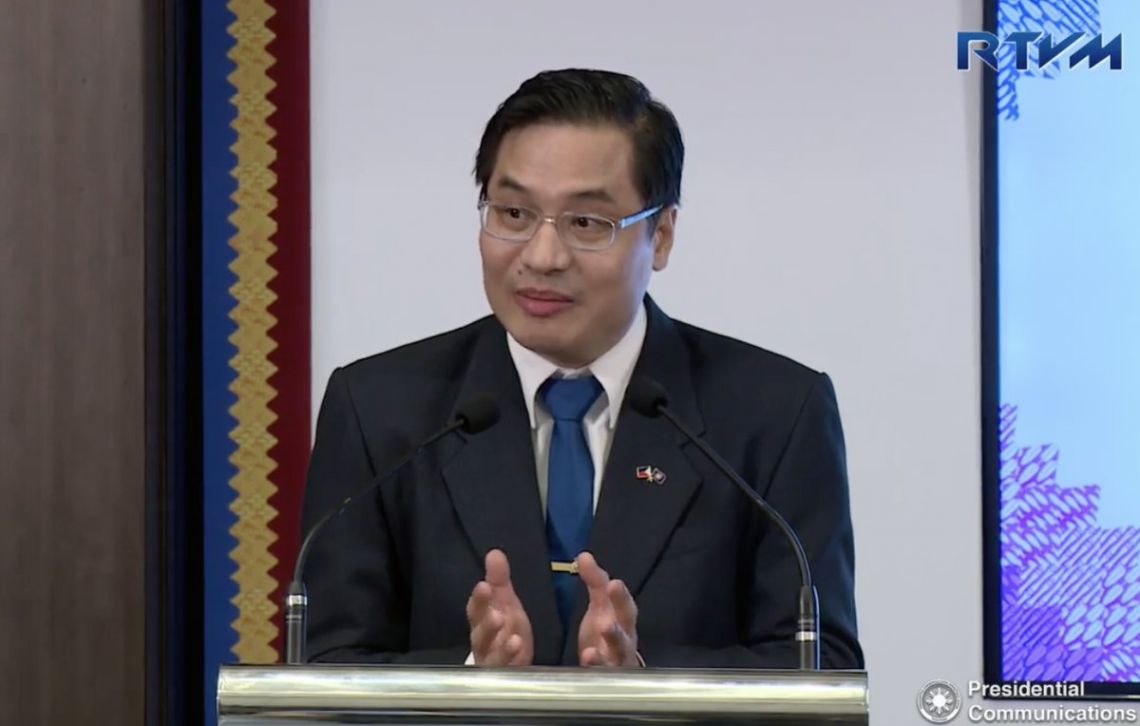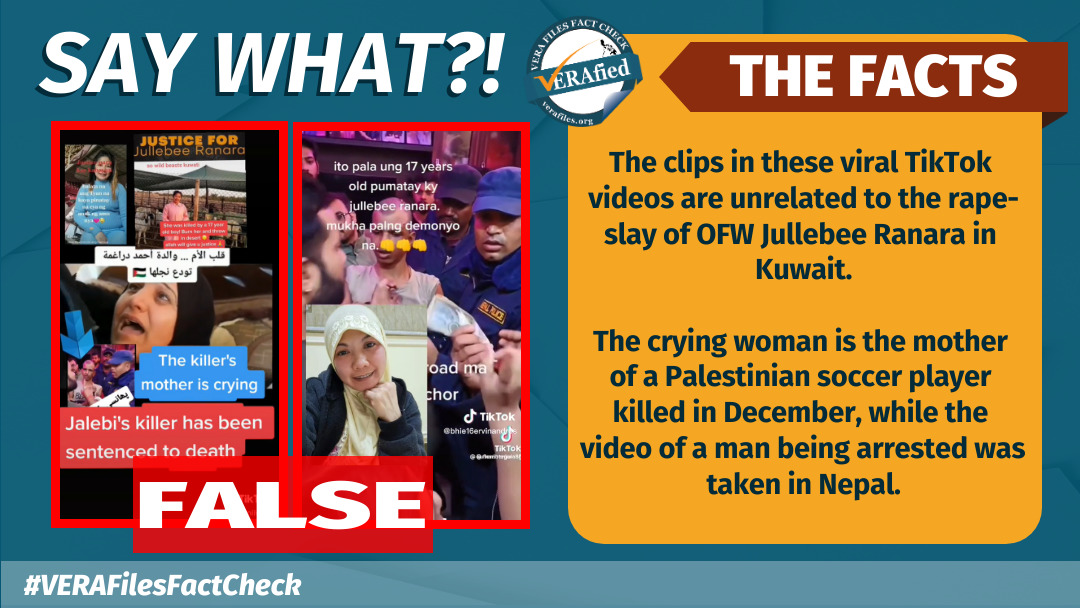By MARK UBALDE
InterAksyon.com
 OVERSEAS Filipino workers (OFWs) have been through a lot since the government institutionalized labor migration some 38 years ago. They have been banned, beaten, kidnapped, evacuated, praised and lauded.
OVERSEAS Filipino workers (OFWs) have been through a lot since the government institutionalized labor migration some 38 years ago. They have been banned, beaten, kidnapped, evacuated, praised and lauded.
From the early 70s, the face of OFWs are mostly men—engineers, seafarers, and construction workers. But from the 80s till the 90s, women, who worked as entertainers, domestic workers, or nurses, have slowly represented the throngs of Filipinos leaving for work abroad. Now, the face of the OFWs seem to belong to the young: fresh graduates who have accepted the reality that good paying jobs are on distant shores.
The official birth year of modern-day OFWs could be traced to 1973. At that time, Arab member nations of the Organization of Petroleum Exporting Countries decided to put an embargo on the US for supporting Israel.
Since our economy was deeply tied with the US, the seemingly distant oil crisis hit home and suddenly massive unemployment followed. When the OPEC finally lifted the embargo, oil prices have already zoomed. This made the Middle East ripe for development.
President Ferdinand Marcos took this opportunity to offer Philippine labor to the developing Mideast nations like Saudi Arabia, Iraq and Kuwait. This was meant to be a stop-gap measure to solve the worsening unemployment in the country. The following year, Labor Minister Blas Ople, the main architect of the 1974 labor export policy, inaugurated the program of sending low-skilled and semi-skilled workers to the Mideast in 1975.
For years, OFWs (known then as overseas contractual workers) had been but mere statistics in the government’s labor data. Not until the early ‘90s did OFWs have a face and it’s not a happy one.
In September 1991, the nation was shocked when 22-year-old entertainer Maricris Sioson died in Japan. Japanese authorities said the Filipina succumbed to hepatitis. But when Sioson’s body was brought back to Manila, her relatives saw bruises on her body as well as on her genital area. Autopsy reports confirmed what the family has been suspecting all along: Sioson was brutally killed. The Japanese authorities refused to give Sioson’s health report to Philippine officials. To this day, her death has been a mystery.
Back in July 1994, then 14-year-old Sarah Balabagan, a native of Sultan Kudarat, stabbed to death her employer in Abu Dhabi for allegedly trying to rape her. She was sentenced to death. The Philippine government trumpeted calls to save her from the gallows. Balabagan’s case marked the hazards faced by Filipino women in the Middle East. Her story also brought attention to the plight of Filipino domestic workers.
Two years later, Balabagan returned to the Philippines after serving time in prison and enduring 100 lashes her crime. She has converted to Christianity and has since become a singer, theatre actress and preacher.
But the abuse did not just happen to Filipino women. In 2000, Rodelio Lanuza was sentenced to death in Saudi Arabia for killing an Arab man who tried to rape him. This is one of the first cases that highlighted the vulnerability of Filipino men to sexual abuse in the Arab region.
Eight years later, Venacio Ladion a.k.a Jenifer Bidoya of Zamboanga Sibugay was beheaded in Saudi Arabia for killing a Saudi man who also tried to rape him.
But no other OFW had captured the Filipinos’ attention more than 42-year-old domestic helper Flor Contemplacion. Her execution in 1995, for allegedly killing her friend Delia Maga and her Singaporean ward, not only enraged the entire nation but also put pressure on President Fidel Ramos’ administration to protect Filipino migrant workers.
Just two months after Contemplacion’s death in Singapore, Ramos issued Republic Act 8042 also known as the Migrant Workers and Overseas Filipinos Act—the first legislation in the Philippines that directly protects overseas Filipino workers.
The protection and welfare of OFWs seemed to be on an uphill trend since then and the tag ‘New Heroes or Bagong Bayani’ reverberated further in the Philippine psyche. OFWs earned this title not only for keeping the Philippine economy afloat with their billion-dollar remittances but also because of their commitment to giving a better life for their loved ones.
In 2008, the Department of Foreign Affairs said the Philippines has become an expert in overseas labor export that it was chosen to host the second Global Forum on Migration and Development, a non-binding, non-committal forum between labor sending and receiving countries.
But the Philippine government seemed to have forgotten that the deployment of OFWs was merely a stop-gap measure. By 2007, about 121 Filipinos leave the country every hour to work abroad. About 10 million Filipinos are now all over the globe—from the mountains of Tibet to the arid lands in Africa.
The global presence of Filipinos has made global events hit closer to home. Sometimes, the face of the OFW is that of disease and panic.
In 2003, Filipina caregiver Adela Catalon became the first fatality of Severe Acute Respiratory Syndrome (SARS) virus, a disease that she had reportedly caught in Canada. The 46-year-old OFW was visiting her hometown in Vacante village, Alacala, Pangasinan when she succumbed to the disease. Kuwait, Lebanon, the United Arab Emirates and Taiwan banned the entry of OFWs following the rising incidence of SARS in the country particularly the exposure of a number of Filipino workers.
In June 2009, a returning Filipino worker became the first case of AH1N1 in Saudi Arabia. A Filipino worker too, became Macau’s first case of AH1N1.
Filipinos are also caught in the crossfires of war and the threats of piracy. In 2004, Filipino truck driver Angelo de la Cruz was kidnapped by Iraqi insurgents and threatened to kill him unless the Philippine government withdrew its troops in the US-led war in Iraq. Succumbing to pressure in the Philippines, the government withdrew its troops. De la Cruz was freed.
Two years later, about 30,000 Filipinos were evacuated from Lebanon as airstrikes from Israel has brought devastation in the Arab country. This event is mirrored by the recent Mideast and North Africa crisis this year.
In 2009, Filipino seafarers, which now made up a third of the world’s manning power over the high seas, has become the most vulnerable to attacks and kidnappings by pirates. Around 208 Filipino seamen were kidnapped in the Horn of Africa by Somali bandits.
Not only were OFWs victims of war and crimes, but they are often the butt of jokes.
In 2007, People Asia Magazine columnist Malu Fernandez drew wide criticism for her article “From Boracay to Greece” where she narrated her horrid ordeal inside an airplane with OFWs.
In one of the controversial paragraphs, Fernandez wrote: “I heaved a sigh, popped my sleeping pills and dozed off to the sounds of gum chewing and endless yelling of ‘HOY! Kumusta ka na? At taga san ka? Domestic helper ka rin ba?’”
“I thought I had died and God had sent me to my very own private hell,” she added.
Instead of apologizing, she followed it up with a column in the Manila Standard Today where she said: “The bottom line was just that I had offended the reader’s socioeconomic background. If any of these people actually read anything thicker then a magazine they would find it very funny…I obviously write for the certain target audience and if what I write offends you, just stop reading.”
But after weeks of criticisms, an online petition against her and several death threats, Fernandez apologized.
Months later, US actress Teri Hatcher’s character in ‘Desperate Housewives’ made a racial slur against Filipino doctors. US-based Filipino health professionals picketed outside the NBC Studio office in New York demanding an apology from the show’s producers. An online petition, which has attracted almost 130,000 signatures, also called for an apology.
The show’s producers eventually apologized for the incident and said they might introduce a Filipino character in the series to amend the slur.
In 2008, Hong Kong-based columnist Chip Tsao wrote in his article, “The War At Home” that the Philippines is “a nation of servants” and threatened a Filipino maid of being fired should the country take over the disputed Spratly Islands. Following protests in Hong Kong and the Philippines, Tsao went to the Philippine Embassy in Hong Kong and apologized to the Filipino people.
But more often than not, the face of the OFW is that of a fighter.
Again in 2008, Ambassador Lauro Baja Jr., a multi-awarded diplomat, was sued by his former maid Marichu Baoanan for allegedly sneaking her into the US to work for his family without proper compensation. Baoanan’s case seemed to be that of David and Goliath, considering the untarnished reputation of Baja.
In 2009, The Canadian government drafted the “Juana Tejada Law”, named after the Filipina caregiver who fought to stay in Canada as part of the live-in caregiver program, while battling lung cancer. Her death inspired Canadians to be more grateful of migrant workers who care for their ageing population.
In the 38 years since the oil crisis pushed thousands of Filipinos to work abroad, the face of the OFW continues to evolve. While it is uncertain when the country will stop sending Filipinos out of the country, the fact remains that global events have become tied with our countrymen’s fate.
Timeline
October 1973 – The oil embargo by the Organization of Petroleum Exporting Countries (OPEC) on the US caused a domino effect all over the world. Massive unemployment followed.
May 1, 1974- President Ferdinand Marcos came out with Presidential Decree 442 otherwise known as the Labor Code.
Labor Minister Blas Ople, the main architect of the 1974 labor export policy, inaugurated the program of sending low-skilled and semi-skilled workers to the Mideast in 1975.
May 1, 1982 – Marcos issued EO 797 dissolving the Overseas Employment Development Board and the National Seaman Board and instead forming the Philippine Overseas Employment Administration
September 14, 1991 – 22-year-old Japanese entertainer Maricris Sioson died at the Hanawa Welfare Hospital in Fukushima, Japan allegedly due to hepatitis autopsy findings in the Philippines, showed she might have been brutally killed.
July 19, 1994 – Then 14-year-old Sarah Balabagan, a native of Sultan Kudarat, stabbed to death her employer in Abu Dhabi for allegedly trying to rape her.
March 17, 1995 – 42-year-old domestic helper Flor Contemplacion was hanged to death in Singapore for killing fellow domestic worker Delia Maga and her Singaporean ward.
June 7, 1995 – Republic Act 8042 also known as the Migrant Workers and Overseas Filipinos Act was enacted into law. This is the first legislation in the Philippines that directly protects overseas Filipino workers.
February 2003 – The Overseas Absentee Voting Law was enacted. This enabled Filipinos outside of the Philippines to register and vote in Philippine elections.
August 10, 2000 – Rodelio “Dondon” Lanuza was sentenced to death in Saudi Arabia for killing an Arab man who tried to rape him. This is one of the first cases that highlighted the vulnerability of Filipino men to sexual abuse in the Arab region.
April 13, 2003 – Canada-based Filipina caregiver Adela Catalon became the first fatality of Severe Acute Respiratory Syndrome (SARS) virus. The 46-year-old OFW was visiting her hometown in Vacante village, Alacala, Pangasinan when she succumbed to the disease.
July 7, 2004– Filipino truck driver Angelo de la Cruz was kidnapped by Iraqi insurgents and threatened to kill him unless the Philippine government withdrew its troops in Iraq. Succumbing to pressure in the Philippines, the government withdrew its troops. De la Cruz was freed.
July 2006 – The Israel-Lebanon conflict forced the Philippine government to evacuate all of 30,000 Filipino workers in Lebanon. The Philippine government banned the sending of OFWs to Lebanon.
August 2006 – President Gloria Macapagal Arroyo launched the “Supermaids” program, which was aimed at upgrading the capabilities of Filipino domestic helpers from Lebanon so they can return to work abroad with higher salaries.
June 2007 – People Asia Magazine columnist Malu Fernandez drew wide criticism for her article “From Boracay to Greece” where she narrated her horrid ordeal inside an airplane with OFWs.
October 2007 – US actress Teri Hatcher’s character in ‘Desperate Housewives’ made a racial slur against Filipino doctors. US-based Filipino health professionals picketed outside the NBC Studio office in New York demanding an apology from the show’s producers. An online petition, which has attracted almost 130,000 signatures, also called for an apology.
February 17, 2008 – A 21-year-old OFW was raped by a US serviceman in Okinawa. This has drawn a string of protests in Japan. And even prompted the US forces in Japan to imposed a curfew among its servicemen.
March 27, 2008 – Hong Kong-based columnist Chip Tsao wrote in his article, “The War At Home” that the Philippines is “a nation of servants” and threatened a Filipino maid of being fired should the country take over the disputed Spratly Islands.
April 13, 2008 – Zamboanga del Norte-native Jakatia Mandon Pawa was sentenced to death by a Kuwaiti court for killing her employer’s 22-year-old daughter.
June 24, 2008 – Ambassador Lauro Baja Jr. and his family were accused of human trafficking, racketeering, peonage and slavery by his former maid Marichu Baoanan.
August 2008- After the spate of OFW suicides in the Middle East, a mandatory psychological testing for all outbound Filipino workers, particularly domestic helpers was proposed.
October 13, 2008 – Venacio Ladion a.k.a Jenifer Bidoya of Zamboanga Sibugay was beheaded in Saudi Arabia for killing a Saudi man who tried to rape him.
October 27-30, 2008 – The Philippines hosted the second Global Forum on Migration and Development, a non-binding, non-committal forum between labor-sending and -receiving countries.
2009 – The US-led economic crisis began affecting countries with thousands of Filipino workers like Taiwan, the United Kingdom, South Korea and Australia. Massive OFW layoffs in the said countries followed.
March 8, 2009 – Juana Tejada, a live-in caregiver in Canada, succumbed to lung cancer. Prior to her death, she had pleaded to the Canadian government to waive the result of her second medical check-up to make her qualify to stay in Canada with her family. This was denied by the government. Her death inspired the “Juana Tejada Law” in Canada, which amended the Live-In Caregiver program.
December 2009 – The number of Filipino seafarers kidnapped by Somali pirates in the Horn of Africa reached 208.
April 10-May 10- Filipino migrants cast their votes during the month-long Overseas Absentee Voting. Of the 589,830 registered overseas Filipinos, only 153,323 or just 26 percent voted.




